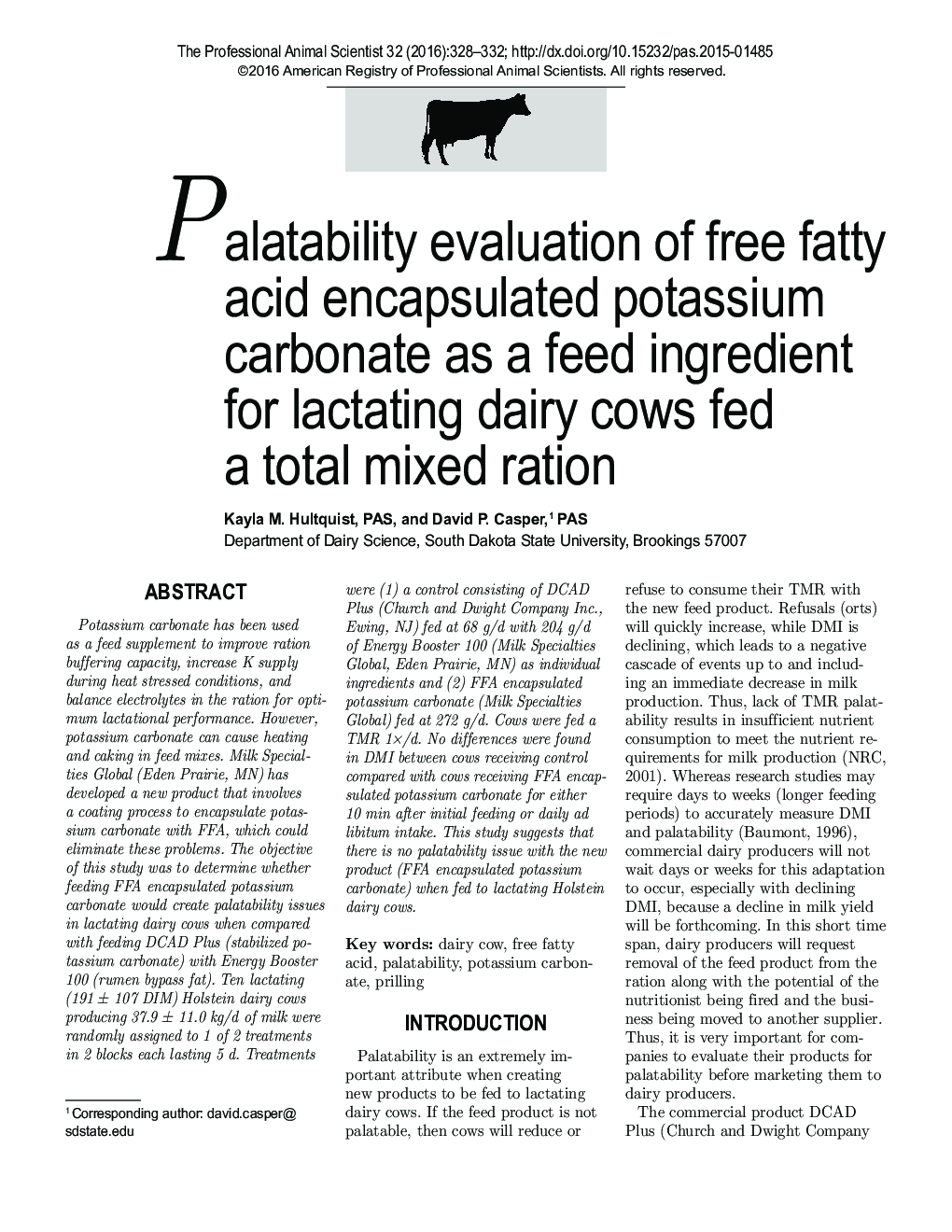| Article ID | Journal | Published Year | Pages | File Type |
|---|---|---|---|---|
| 10161710 | The Professional Animal Scientist | 2016 | 5 Pages |
Abstract
Potassium carbonate has been used as a feed supplement to improve ration buffering capacity, increase K supply during heat stressed conditions, and balance electrolytes in the ration for optimum lactational performance. However, potassium carbonate can cause heating and caking in feed mixes. Milk Specialties Global (Eden Prairie, MN) has developed a new product that involves a coating process to encapsulate potassium carbonate with FFA, which could eliminate these problems. The objective of this study was to determine whether feeding FFA encapsulated potassium carbonate would create palatability issues in lactating dairy cows when compared with feeding DCAD Plus (stabilized potassium carbonate) with Energy Booster 100 (rumen bypass fat). Ten lactating (191 ± 107 DIM) Holstein dairy cows producing 37.9 ± 11.0 kg/d of milk were randomly assigned to 1 of 2 treatments in 2 blocks each lasting 5 d. Treatments were (1) a control consisting of DCAD Plus (Church and Dwight Company Inc., Ewing, NJ) fed at 68 g/d with 204 g/d of Energy Booster 100 (Milk Specialties Global, Eden Prairie, MN) as individual ingredients and (2) FFA encapsulated potassium carbonate (Milk Specialties Global) fed at 272 g/d. Cows were fed a TMR 1Ã/d. No differences were found in DMI between cows receiving control compared with cows receiving FFA encapsulated potassium carbonate for either 10 min after initial feeding or daily ad libitum intake. This study suggests that there is no palatability issue with the new product (FFA encapsulated potassium carbonate) when fed to lactating Holstein dairy cows.
Related Topics
Life Sciences
Agricultural and Biological Sciences
Animal Science and Zoology
Authors
Kayla M. PAS, David P. PAS,
